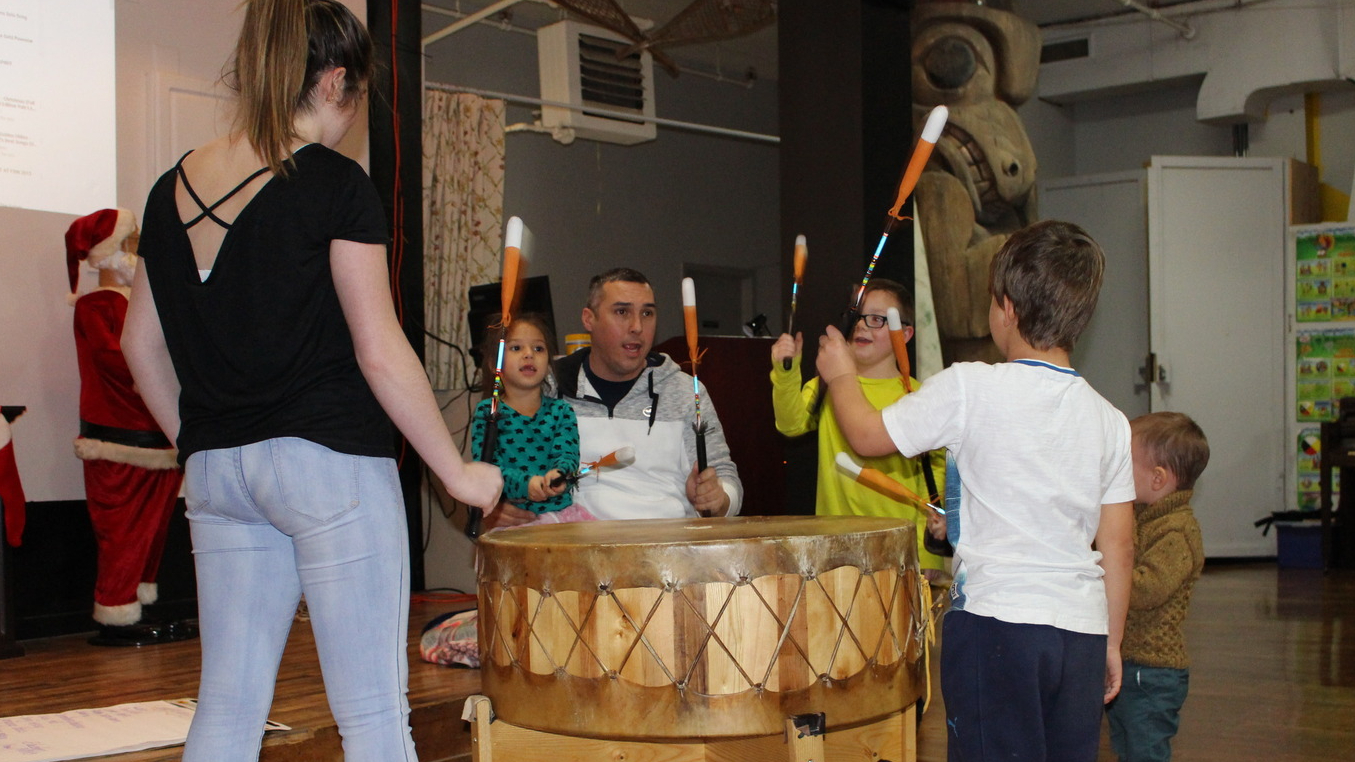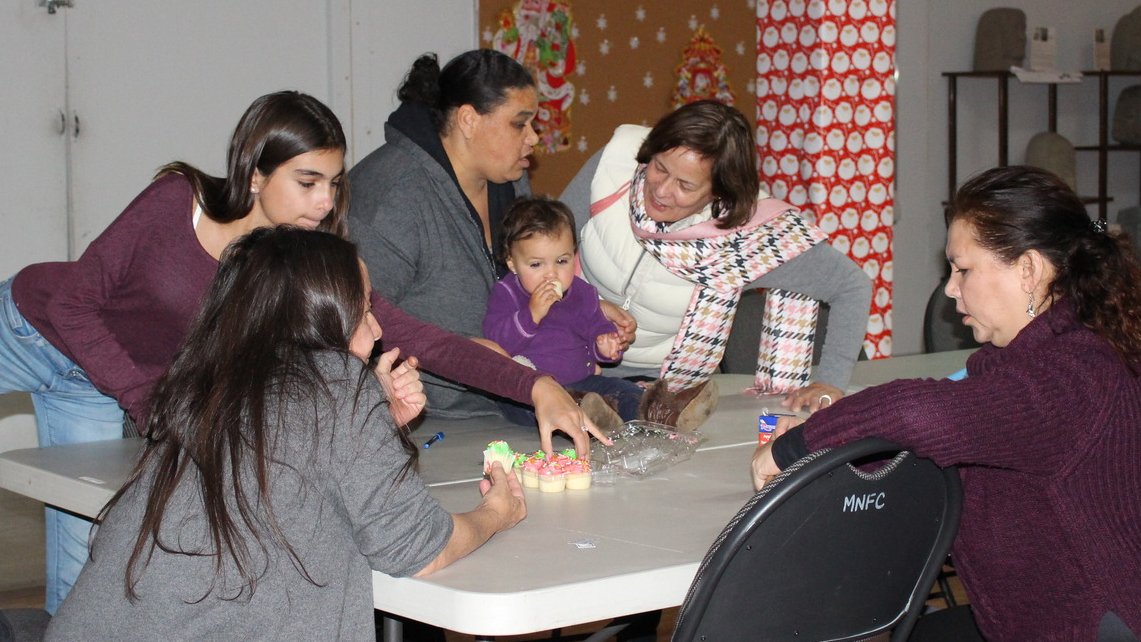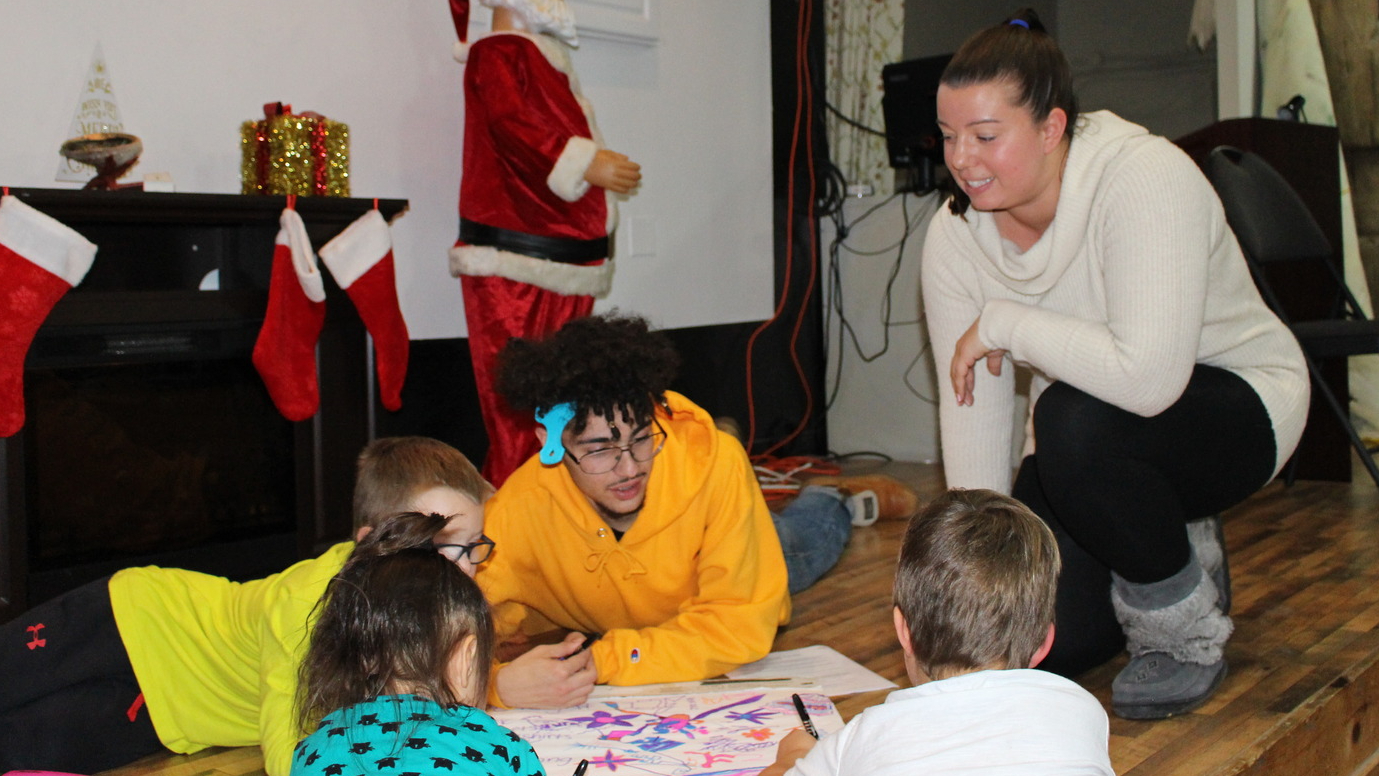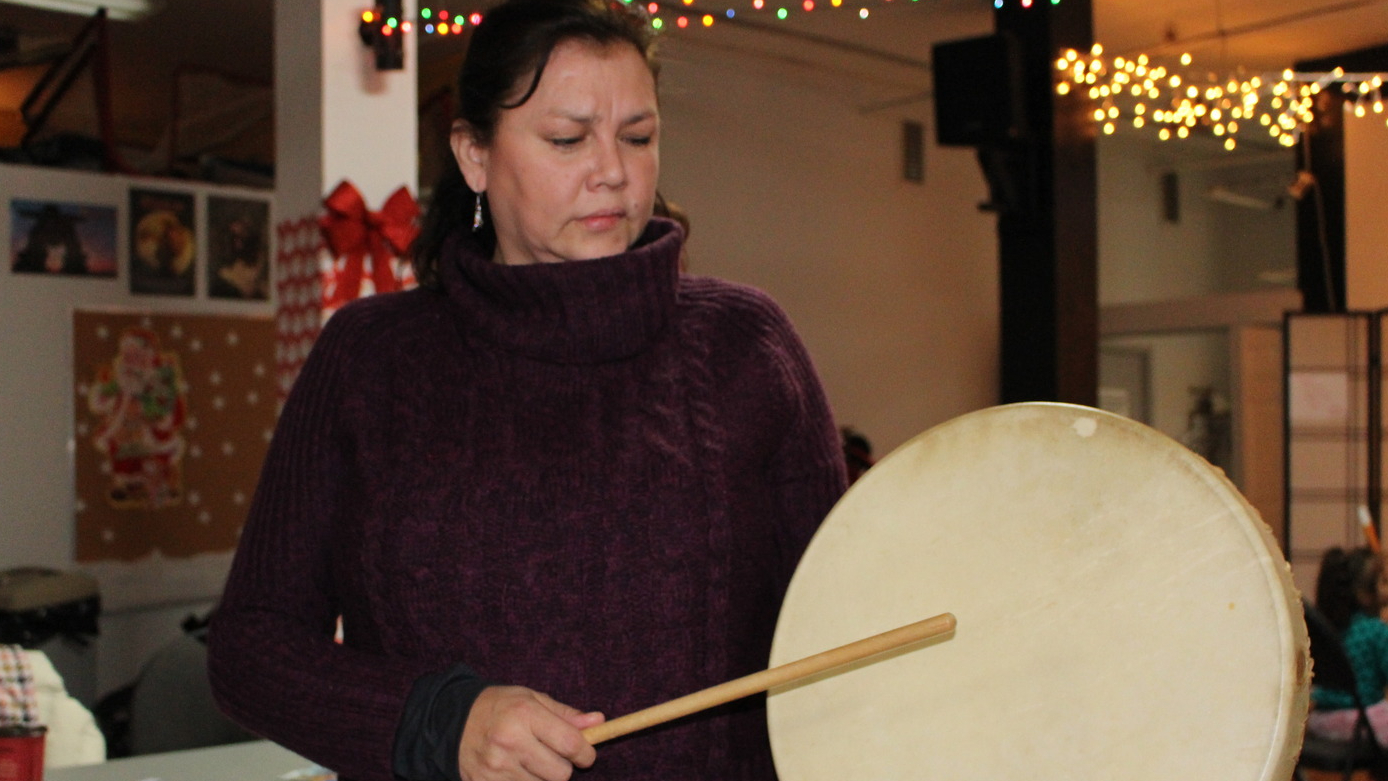Community
‘Be immersed’: Mi’kmaw Friendship Centre launches cultural nights
All welcome for beading, drumming every other Thursday

caption
Children and youth sang and played the drum with Bradley Paul at the first Mi'kmaq cultural night.Cheyenne Labrador didn’t have an opportunity to practise Indigenous culture when she was growing up, but now she is giving others the chance to do that.
Labrador, a Mi’kmaw from the Acadia First Nation, lives away from her community, like many urban Indigenous people. So, when the Facebook group Natives in Halifax requested a community get-together, Labrador, executive assistant at the Mi’kmaw Native Friendship Centre, worked with her colleagues to make it happen.
The first cultural night, held on Thursday, seemed like a family reunion with about 30 people attending. Children played together before gathering around a drum at the front of the room. In one corner people talked to each other, while in the kitchen a group of women cleaned and socialized.
“We don’t gather unless it’s for certain events,” said Labrador. “Being able to get together and socialize is huge.”

caption
People socialized at the first Mi’kmaq cultural night.The Friendship Centre is open from 9 a.m. to 4 p.m. on weekdays, but many people, like Labrador’s partner Bradley Paul, have other commitments during that time.
“There’s no possible way that he could come to the centre to stop in for a coffee or have a smudge,” said Labrador. “We wanted to give those people the opportunity to come to something after hours.”
With the cultural nights, they will be able to practise and learn beading, drumming and songs, among other spiritual and cultural practices. The activities each night will depend on what the community wants to do. There are currently eight nights scheduled, leading up to a round dance in March.

caption
Labrador talked to children and youth as they coloured Thursday night.Paul described the round dance as a “friendship dance,” where people play hand drums and sing different styles of songs while standing in a circle. Paul will teach drumming and help participants prepare songs for the round dance.
“I love passing on this teaching,” said Paul, who is from the Paqtnkek Mi’kmaw Nation. “The drum is very sacred to me and it’s one of our sacred gifts that was given to our people. And it’s to bring our people closer together with music.”
All Welcome
Everyone is welcome to attend the cultural nights, no matter if they are Indigenous or not.
Marlon Solis, an immigrant from the Philippines, plans to attend regularly to form friendships and learn more about Indigenous communities.
“They’re the first ones here. They’ve welcomed us into their unceded Mi’kmaq territory right here, and it’s important to recognize that,” said Solis, who is part of a YMCA intercultural committee that creates opportunities for newcomers and First Nation communities to connect.

caption
Linda Denny attended the event to learn how to make a drum stick for her hand drum.Building connections
As the sounds of children drumming filled the room, Linda Denny said she remembers being made fun of for practising her culture as a child.
“When I was a kid, I didn’t know who I was as a Mi’kmaw person. I wasn’t taught. They didn’t teach me about me,” she said.
“You can see the children here, how fascinated they are. And that’s what we want to continue because it’s about preservation (by) keeping the language going, keeping the culture going.”
Denny is from the Eskasoni Mi’kmaw Nation. On Thursday, she had an opportunity to meet Indigenous people from other places, like Manitoba. She said sharing different cultures, languages and chants is “beautiful.”
“I think it’s really important to be immersed and participate in who you are as a person,” said Denny. “If you don’t know where you come from, you don’t feel good about who you are and then you would be lost.”
Denny attended the event to learn how to make a drumstick, as her mother had gifted her a handmade hand drum for graduating university.
Paul helped her make one.
“I hope that the community will continue to keep coming,” Labrador said. “And maybe (we’ll) even have the centre open two nights a week, or something like that, just for people to be able to socialize and build that stronger community connection.”

